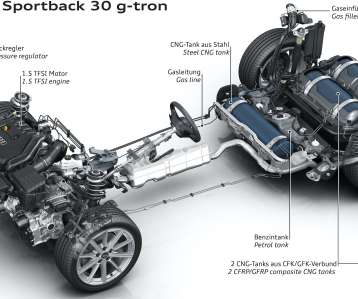Audi introduces new CNG A3 Sportback
Green Car Congress
SEPTEMBER 16, 2020
The cylinder head, injection system, turbocharger and catalytic converter were modified accordingly for the CNG engine. They are made of fiber-composite materials and, in keeping with Audi’s lightweight construction philosophy, each weighs just 26 kilograms (57.3 Operation with the knock-resistant fuel CNG enables a higher 12.5:1
















Let's personalize your content